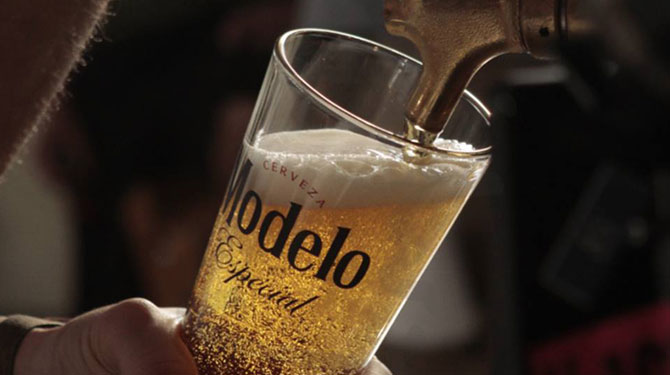
Constellation Brands reported its third-quarter fiscal 2019 earnings today, which were highlighted by nearly 8 percent growth in beer depletions (sales-to-retailers) and a 14 percent increase in shipments (sales-to-wholesalers) for the comparable three-month period ending November 30.
Net sales of Constellation Brands’ beer portfolio — which includes Mexican import brands Corona, Modelo and Pacifico, as well as craft offerings from Ballast Point, Funky Buddha and Four Corners — increased 16 percent in Q3, to more than $1.2 billion.
Year-to-date, shipments and depletions are more closely aligned, both up 10 percent and 9 percent, respectively, through the first nine months of the fiscal year. Net sales of Constellation’s beer products are also up 12 percent through the first nine months, to more than $4.1 billion.
In a press release, Constellation Brands CEO Rob Sands called the performance of Constellation’s beer business “the highlight” of the company’s quarter.
Sands, who will hand the CEO role off to current president and COO Bill Newlands in March, credited the Casa Modelo and Corona brand families with driving depletion growth.
In a call with investors and analysts, Newlands said Corona line extensions Premier and Familiar as well as Modelo Especial were the top three high-end U.S. beer industry share gainers during Q3. He credited Corona Premier — which has fewer calories and carbs than its namesake flagship, Corona Extra — with driving growth as it appeals to consumers looking for a “better-for-you” beer. He added that the brand is sourcing “much of its volume from the more than 1 billion cases of declining domestic lights” and has room to grow.

Nevertheless, analysts asked about Premier cannibalization volume from Corona Extra. Newlands said Constellation is “agnostic” as to which product gets sold as “the margin and profit profile” of those brands is “virtually the same.” He added that the cannibalization of Corona Extra has been as expected, if not “slightly less.”
Newlands also said there is potential to capitalize on additional growth opportunities for draft and canned versions of Corona Extra.
Meanwhile, Constellation will continue to broaden the Corona brand family via the launch of Corona Refresca. According to Newlands, Constellation’s research has shown that Refresca is “80 percent incremental” to the company’s growth. He added that Refresca also helps to attract new customers.
“It is our strategy to complement our import portfolio and lay the foundation for future success with domestic, sessionable and alternative beverage alcohol products that appeal to general market and Hispanic consumers,” Newlands said.

As for Modelo Especial, the brand is now the top selling beer in California, overtaking Bud Light and Budweiser, Newlands said.
During the call with investors, Newlands shared a handful of takeaways from the quarter, including announcing plans to provide shareholders with $4.5 billion in cash returns over the next three years through share repurchases and dividends.
Newlands also addressed Constellation’s $4 billion investment in Canadian cannabis company Canopy Growth. He expressed confidence that Canopy can achieve $1 billion (Canadian) in revenue within the next 18 months.
Constellation chief financial officer David Klein likened the company’s Canopy investment to a “ventures investment.” Although Constellation “expects to get an outsized return on that investment” in the future, he said the company anticipates “volatility” on its profit and loss statement in the meantime. However, he said Constellation believes it can return $4.5 billion to its investors as well as fund “warrants” with Canopy Growth set to expire in 2021. Those warrants, if exercised, would increase Constellation’s ownership stake in Canopy to more than 50 percent.

“However, we’ll only fund the Canopy warrants if it makes sense, and the business is unfolding as we expect when we get into November of 2021,” Klein said. “If that business is going well, we think our investors will be happy for us to exercise those warrants, and if the business isn’t going well, we’ll have a lot more cash to return to our investors.”
Transportation and logistics costs as well as a short-term glass supply issue in Mexico led to a decrease of 60 basis points (bps), to 37.3 percent, during Q3, Klein added.
As of press time, Constellation stock (STZ) was trading close to its 52-week low of about $152, down about 11 percent. The stock price has declined from a 52-week high of $236.62.
